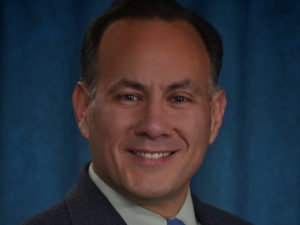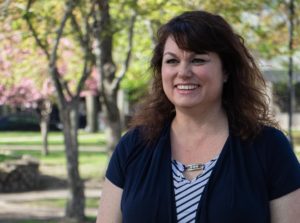It’s encouraging that parents and voters are finally speaking out against the radical agenda being imposed upon students in our public schools. Sadly, many school board members and administrators refuse to listen to parent’s concerns. They need to be voted out.
Parents are upset over mask mandates, programs that promote racial hatred, such as Critical Race Theory, and policies that shame students who forgo experimental vaccines.
Meanwhile, test scores have plummeted under centralized initiatives, such as Common Core, which was designed to promote political activism such as Black Lives Matter, instead of promoting literacy.
Another radical initiative is Competency-Based Grading, which promises “equity” of outcomes, rather than promoting equal opportunity for all. It’s designed to boost low-performing students’ grades at the expense of hard-working and high achieving students, in order to artificially “equalize” outcomes.
And finally, Social Emotional Learning (SEL), is a thinly disguised indoctrination program designed to change student values to align with those in control, rather than their own family values. SEL favors partisan agendas, such as Critical Race Theory and White Privilege, and shuts down dissent, as it requires conformity.

These radical initiatives undermine real learning and have left parents without a voice.
In Manchester, two candidates for mayor, Rich Girard, and Victoria Sullivan have stepped forward, proposing change to help parents restore their voice and provide school choice. Which proposal is better for parents?
Rich Girard focuses on a structural change to the district itself, decentralizing schools and empowering parents to create individual community schools that fit their children’s needs. He favors academic change and understands the danger of Critical Race Theory, which is designed to divide students and create hostility. He doesn’t promote radical Social Emotional Learning programs. Girard wants to allow parents to make their own academic decisions and select the school that best reflects their educational philosophy.
Girard wants to enable parents to choose any school within the district and simultaneously minimize district control over those schools. He wants to attract students to attend Manchester schools due to local innovation led by parents.
It is my opinion that decentralization is essential to reversing the current centrally-controlled public school disaster with which parents are now struggling.
In conclusion, Rich Girard’s plan looks like a better plan to address the needs of the Manchester community. It’s focused on academics, literacy, and strengthening the schools through choice, not Social Emotional Learning frameworks, social justice, or equity training in the schools. Girard proposes to make it possible for parents to work with teachers to create a variety of academic options that are uniquely suitable for their children.
Victoria Sullivan’s reliance upon Social Emotional Learning frameworks undermines my enthusiasm for her education plan, but she has many great ideas and substantial experience in the state legislature. It would be terrific if she would consider running for Manchester’s Board of School Committee to help parents and students.
—————————————————————-

- Establish a Manchester Educational Marketplace, a public school choice system that eliminates attendance districts and incentivizes options that provide families with choices they want and students deserve;
- “Funding follows the child” to provide incentives to create options and rewards for producing results;
- Opens the door for local businesses, colleges/universities, non-profits and other organizations to work directly with schools or create their own educational options for families and students;
- Encourages parents to get involved with their children’s schools by enabling them to help create new options and providing the opportunity to choose where their children go to school;
- Gives educators a direct say in the school mission they help design, including the ability to partner with businesses, colleges, and other community organizations to support a specific educational focus or approach;
- Takes advantage of new state legislation (HB 609) that will allow school boards to designate “innovation schools” or “innovation zones”;
- Frees individual public schools to compete with the more nimble independent charter, Catholic and private schools that have specifically targeted methods, opportunities or programs with which Manchester, a big bureaucratic district simply can’t compete.
- Give district schools a fighting chance to compete with schools that have specifically targeted methods, opportunities, or programs by creating options for students they believe they can best serve their needs. Gifted and talented, dual immersion, special needs, at-risk, STEM, performing arts, the Humanities, “early college high school,” vocational programs, year-round school, etc.
- Strongly opposes the massive building program supported by Joyce Craig, which he estimates will cost taxpayers over half a BILLION dollars. Girard’s press release on this issue. Girard’s Op.Ed. in the Union Leader.
-
Opposes Critical Race Theory.
- Opposes the district’s Transgender policies.

- “Strengthens the family” by fully supporting and adhering to a Social Emotional Learning (SEL) framework, 40 Developmental Assets. This program is designed to modify student values, including “Equality and Social Justice, Reducing Hunger and Poverty.”
According to Harvard University, “Developmental Assets (ages 12-18)” focuses on Cognitive skills 11%; Social skills 26%; Emotions skills 68%; Identity skills 5%.
- Wants to strengthen parental voice in education by implementing the Karen Mapp dual capacity framework for all Manchester schools, which is supported by the New Hampshire Department of Education.
- Embraces the play-based education model. “Hands-on learning increases the depth of education, strengthens literacy, reduces classroom behavior issues, and produces long-term positive outcomes.”
- Explores inter-district school choice.
- Segregates all of our most vulnerable students into the same few schools, increasing the education gap for minorities and our most vulnerable children.
- Creates a tax rebate for parents that choose schools outside of the district that do not use Manchester School District educational services or transportation.
- Revisits re-districting. Parents choose their home based on the schools that will serve their children. Changing the boundary lines, without offering inter-district school choice, will change nothing. As an example, “pushing 5th graders into middle school while claiming over-crowding to the state that an elementary school should be closed poses questions.”
- Implement Education Learning Pods:
- Not all children thrive in a traditional learning environment. Learning Pods are small, in-person, multi-age groupings of students in an anxiety-sensitive environment that allows children to stabilize, rekindle curiosity, and accelerate learning so that they may catch up with their peers. Generally, a Learning Pod has between 5–10 students in grades K-2, 3-5, or 6-8 groupings.
- The learning system, which is aligned to the New Hampshire academic standards, is supported by the NH DOE and focuses on empowering learners through three different mastery and project-based learning modes each day: Conquer, Collaborate, and Create.
- No mega-high school for Manchester, better to create magnet schools, for example, attract families with classical education, performing arts, or even agricultural school.
